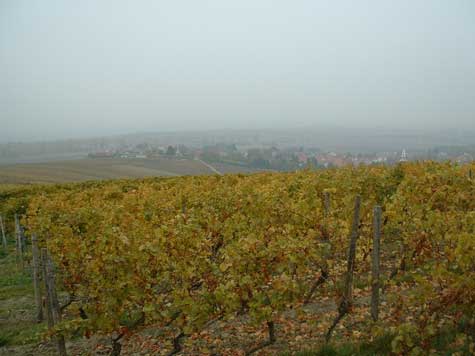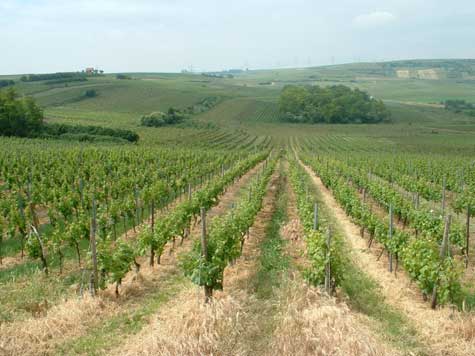| About Stefan Winter |

|
Rheinhessen is the biggest German wine region and is located between
the triangle Mainz - Bingen - Worms, all three of them towns on
the Rhine. This softly sloping landscape is dominated by white grapes.
Müller-Thurgau and Silvaner are the most important varieties.
Followed by Riesling, which has an attractive expression when grown
on chalky soils.
With its 30 acres the Winter wine farm is not a small one. Together
with his parents Edmund and Hiltrud, Stefan Winter persues constant
improvement in vineyard and cellar. The work commences early in
the vineyard and continues until the harvest, which takes place
as late as possible, in order to obtain grapes with a maximal ripeness.
The wine is given ample time to ferment, between 10 and 30 days.
If possible the fermentation is started with natural yeasts ("spontanhefen").
This ultimately results in very mineral and concentrated wines with
a crystal clear expression of (tropical) fruit. Even Jancis Robinson
(the famous English wine guru) is heavily charmed by Winters Rieslings,
if we may believe her blog.
Stefan Winter is a founding member of the wine collective "Message
in a bottle", which groups some twenty young wine makers from
Rheinhessen in their quest for quality and renovation.
|
|

|
|
| The wines of Weingut Winter |
|
| Riesling Gutswein |
|
Although
2006 is considered a "difficult year" for German wine,
we have not tasted any green or unripe elements in the Winter wines.
Despite the bad autumnal weather the Riesling grapes were perfectly
ripe. This is demonstrated by the 2006 "Gutswein" or domain
house wine, which is a startling success. A goldlike yellow. A very
special, spicy and delicate nose: apricot, spices, thyme, even a
bit saltish. A very round flavour, with discrete and sophisticated
acids and lots of jammy tropical fruit. Voluminous. A flavour that
persists. A hell of a Riesling. |
|
| Riesling "Kalkstein" |
|
This
Riesling is grown on a parcell with a soil of predominantly "muschelkalk".
Has a more pronounced minerality than the house Riesling, but shares
the same spiciness and concentration. |
|
|
|